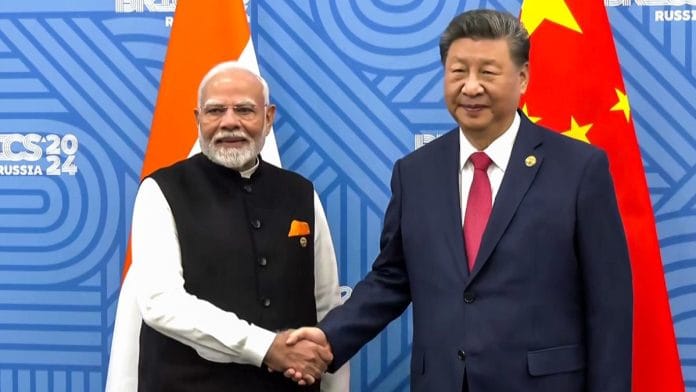New Delhi: In a rare move, Nayara Energy has shipped diesel to China—a first since 2021, as ties continue to thaw between New Delhi and Beijing. The move comes amidst a churn in ties between India and the US over President Donald Trump’s tariffs, and a couple of weeks ahead of Prime Minister Narendra Modi’s expected visit to China.
The shipment of diesel to China was reported by Bloomberg, hours after media organisations reported Beijing’s move to relax curbs on the export of urea to India. The moves by China come as Trump continues to redraw the global trading regime.
According to reports, the EM Zenith, an oil tanker carrying diesel from Nayara’s Vadinar refinery in Gujarat left for South East Asia on 18 July. However, the Vadinar refinery was specifically targeted in the 18th package of sanctions by the European Union (EU), as it is partly owned by Rosneft, the Russian oil and gas company. Nayara is also partly owned by Rosneft.
The latest EU sanctions were announced hours after the cargo ship left the port. The ship was intended to travel to Malaysia, reported Bloomberg. According to MarineTraffic, a maritime analytics provider, the ship is now headed towards the Chinese port of Zhoushan and is expected to arrive on 20 August.
According to Bloomberg, Beijing has also relaxed the curbs on the export of urea to India. India is one of the largest importers of the crop nutrient, used by millions of farmers across the country.
In the financial year 2023-2024, India imported roughly $774 million worth of urea (HS Code: 3102.10) from China. However, in June 2024, Beijing announced export curbs to urea, due to its own domestic requirement, according to reports. In that year, China was the top exporter of the crop nutrient to India.
In the last financial year (2024-2025), India’s urea imports from China fell to $42.8 million following Beijing’s export curbs. In June this year, China lifted export restrictions on urea, but maintained the limitations for exports to India. However, according to Bloomberg, that has now been lifted.
These moves come ahead of Modi’s visit to the Chinese city of Tianjin for the Heads of States’ summit of the Shanghai Cooperation Organisation (SCO). The summit is scheduled to be held on 31 August and 1 September. It will be Modi’s first visit to the East Asian nation since 2018, when China last hosted the SCO summit in the city of Qingdao.
The growing thaw between India and China comes after years of diplomatic chill. In the summer months of 2020, the two militaries clashed at Galwan in Eastern Ladakh. The political relationship cratered following the clashes.
For over four years, ties between the two countries were on pause, until an agreement was reached over disengagement at the friction points of the Line of Actual Control (LAC) last October. The agreement set the stage for a bilateral meeting between Modi and Chinese President Xi Jinping in the Russian city of Kazan on the margins of the BRICS leaders’ summit on 23 October 2024.
The political thaw between New Delhi and Beijing comes as US President Trump takes aim at India in particular. The American President most recently last week imposed an additional tariff of 25 percent on imports from India, increasing the total levies on Indian imports to 50 percent.
Trump has taken aim at India’s continued purchase of Russian oil as a reason to impose the additional tariffs.
Since Trump’s first term, the American President has also taken aim at China’s exports to the US, with the two countries locked in a trade war since 2018.
India and China have instituted a number of confidence building measures since December 2024, including Beijing resuming the Kailash Mansarovar yatra in this summer. On 24 July, India resumed issuing tourist visas to Chinese nationals, and the two governments are expected to announce the resumption of direct air services soon.
Most recently, Chinese Vice Minister of Foreign Affairs Sun Weidong travelled to India for consultations with Foreign Secretary Vikram Misri. In the last two months, India’s National Security Adviser (NSA) Ajit Doval, Defence Minister Rajnath Singh and External Affairs Minister S. Jaishankar have all travelled to China for meetings on different mechanisms of the SCO.
(Edited by Viny Mishra)
Also read: Chinese chatter says Trump tariffs will make India turn to China and Russia






